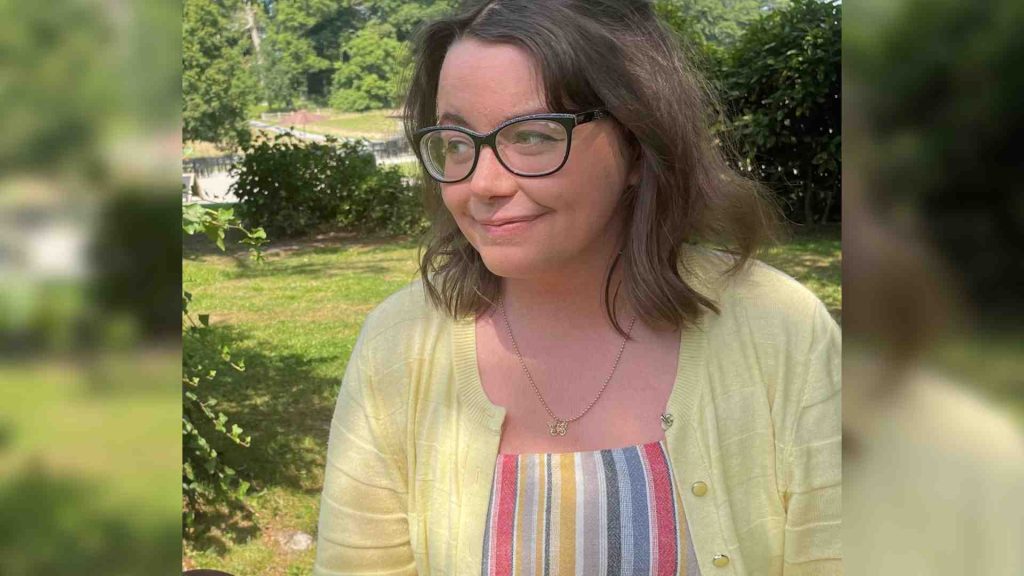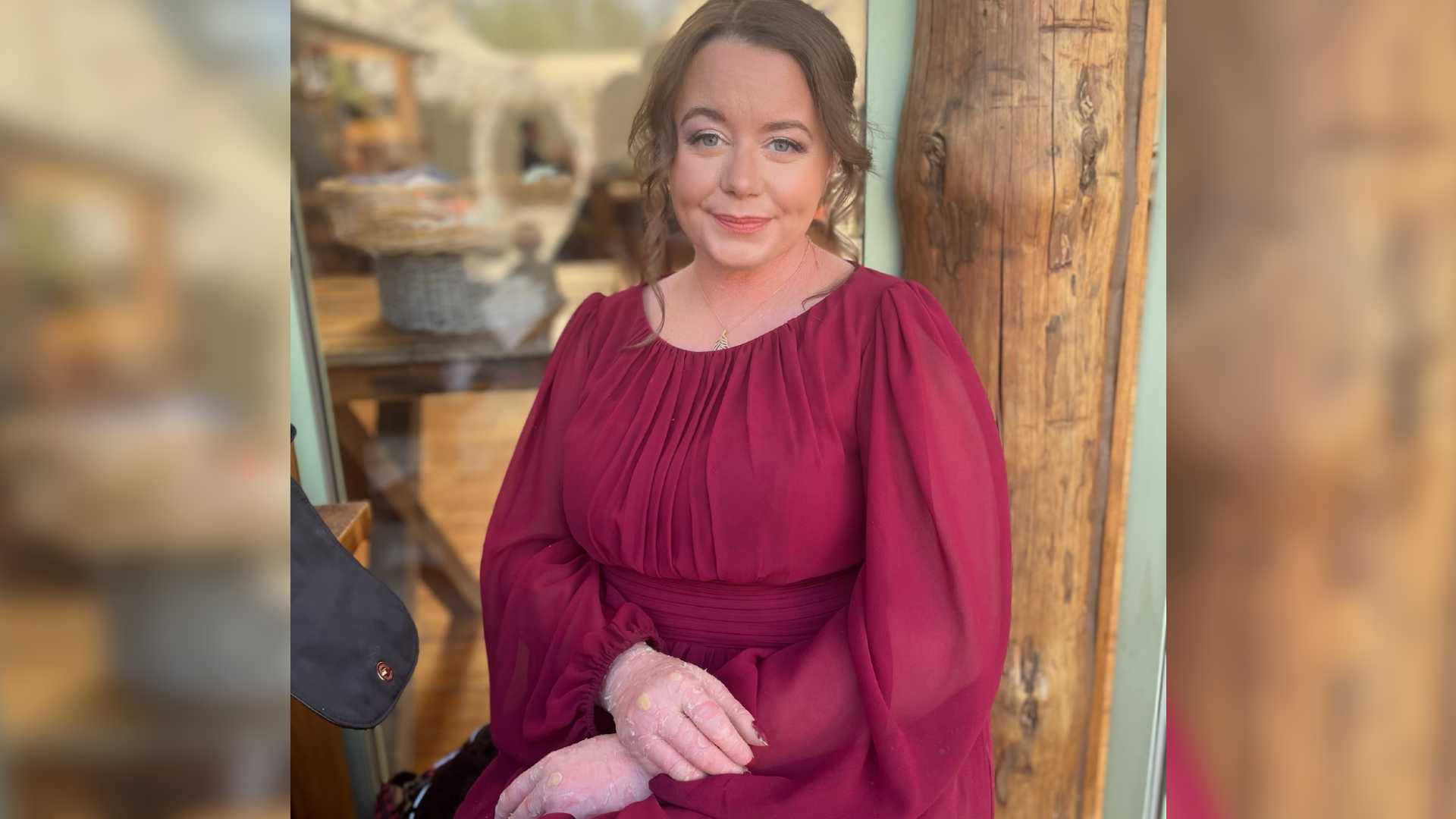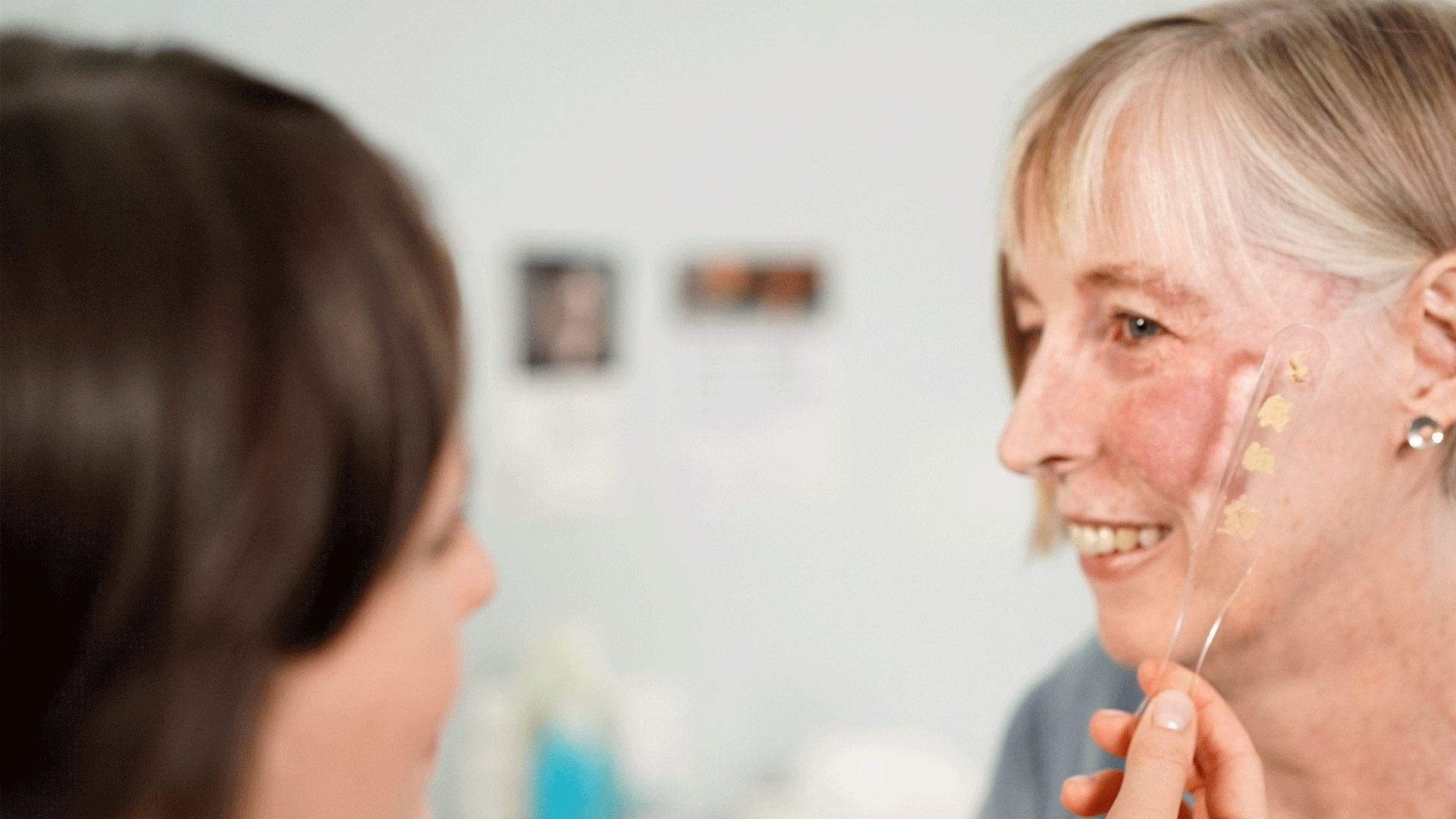Hello! My name is Rhiannon, and I live with a rare genetic skin condition called Epidermolytic Ichthyosis (EI). When I was born, it looked like I had gloves on my hands and socks on my feet, a tell-tale sign of where I would be affected the most. Midwives at first floundered, as when I was taken away to be cleaned, my skin came away with the wipe of a washcloth.
I was incredibly lucky to be diagnosed at birth with ichthyosis, as I could receive the medical support I needed from the start. In a nutshell, EI means that my skin grows too fast due to a gene abnormality which makes the skin prone to infection, blistering and fragility. It causes significant mobility issues such as joint movement and hand dexterity, and I often get around with the use of my trusty wheelchair.
Growing up with ichthyosis felt like a constant battle with my own body. Being held as a baby caused me to cry in pain, I missed 70% of my education and was constantly out of the loop with my peers due to hospitalisations. Roughly, five hours of my day is taken up by taking care of my skin!
Having my condition has given me so many skills. I’m able to empathise with others, see beauty where others cannot, and experience the world in a unique way.
I experienced the social obstacles of living with a visible difference, where strangers and peers believed it was okay to ask if I had been burned in a house fire or if I neglected myself. Some classmates even refused to sit near me, or if they did due to class seating arrangements, it was met with chagrin.
This greatly affected how I saw myself in my formative years and avoiding mirrors as a teenager became habitual. I was a medical anomaly, so when I looked at my reflection, I saw someone who wasn’t ‘normal’. Most of my hospital appointments were crammed full of students and consultants, and years of being looked at under a microscope and receiving stares from strangers certainly took its toll, affecting my mental health and my own perceptions of my appearance.
I went to a medical conference once when I was 13 years old. I had to sit on a bed in my underwear and vest and speak to about 100 doctors on a rotational basis who wanted to learn about my skin and how I dealt with it. Some were friendly, others lacked bedside manners, one even came and inspected me with a wooden tongue depressor.
As an adult, I’ve lost count of how many people have offered me a cure to my condition (which is so far incurable). Even now, I expect a comment or a diagnosis every time I visit a supermarket or meet someone new, and although I smile and make light of it, living with a visible difference is exhausting and can be incredibly lonely. Sometimes I want to be grumpy and say: “Do you really think I’d be out in public if I were contagious?”
Nonetheless, having my condition has given me so many skills. Understanding my body and what it needs is one of them, but I’m also able to empathise with others, see beauty where others cannot, and experience the world in a unique way. I wouldn’t change myself for anything. I’m also a pro-bandager, if I do say so myself!

Rhiannon has learnt to love herself exactly as she is
It took until my early to mid twenties to truly accept who I was and who I am. Accepting yourself and your visible difference is not linear, it is an ongoing process that is different for everybody. Learning to love yourself takes time, and that’s okay, because help is out there to prevent you from going it alone.
I was referred to Changing Faces’ Skin Camouflage services when I was around 17 years old. I so desperately wanted to try makeup so I could look like my friends for our Sixth Form prom, but the service provided me with much more than just makeup tips.
I learned how to colour correct my skin to curtail redness and what specific makeup products would help hydrate my skin. It also gave me someone to chat to who would listen to the concerns I had about my skin without judgement. Unfortunately, the products on hand were matte and too drying on my own skin, but it was a learning curve which I used as an advantage to find what works for me.
You are expected to just ‘get on with it’, when the reality of such a thing is incredibly difficult without a support network.
Changing Faces offers a life changing opportunity to engage with others who experience the same things you do. I am incredibly grateful to be on board as a campaigner, to shed light on the issues people with visible differences face every day and bring awareness to the importance of being rare.
I would love to see changes made in the television industry for people with visible differences. As a society, we focus too much on perceived perfection, and favour the comfort of filters and airbrushed finishes to the point that skin textures and real faces are shocking to audiences. It doesn’t have to be that way.
This is not the only industry that changes need to be made in. The medical field should better consider the mental wellbeing of people living with visible differences. In my case, I was born with my difference, but there is a significant lack of support for people with acquired and inherited visible differences. You are expected to just ‘get on with it’, when the reality of such a thing is incredibly difficult without a support network. I’d love it if people were offered or signposted to mental health and wellbeing support alongside other medical interventions – it would make so much difference.
If you live with a visible difference and are struggling with confidence, just know that it gets better. It’s a cliché, but I’ve been there – those adolescent years where I wouldn’t say boo to a goose! I say find your community, because they’re out there waiting for you. Open up and talk to others, and please do not suffer in silence. Your words are powerful and hold incredible value, and besides, how boring would it be if we all looked the same?

